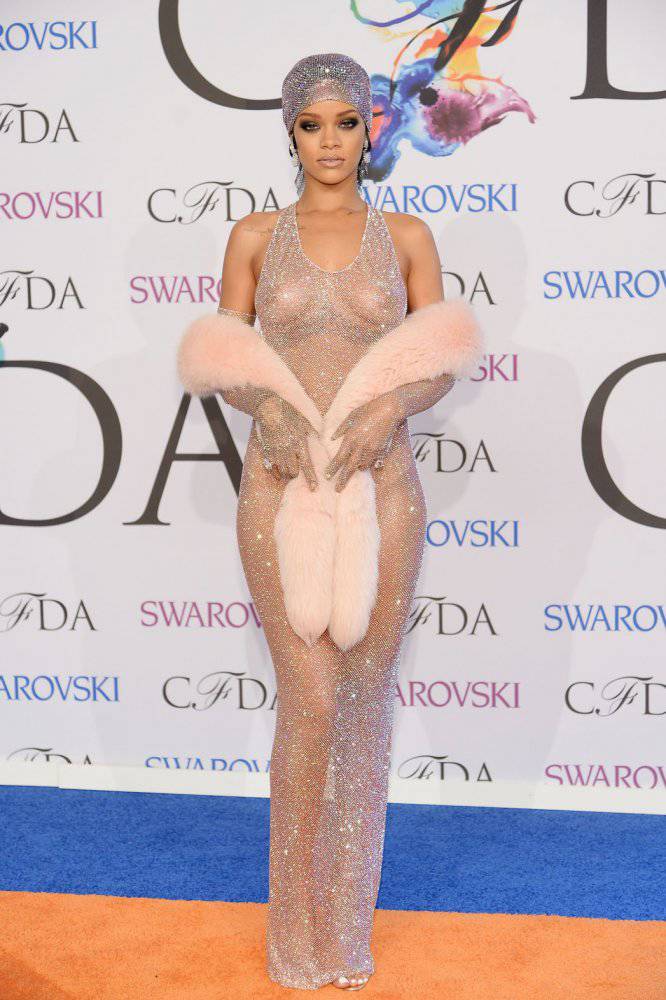
between the ma’at tattoo under her breasts, countless instagram pics and the recent lui magazine cover, rihanna’s breasts receive lots of attention. therefore, we shouldn’t be shocked that her nipples played a starring role when she received the cfda fashion icon award last night. rihanna’s dress was covered in swarovski crystals — and not much else.
 she looked ethereal, almost other worldly with the sparkling dress, gloves and head wrap. with the dress and her nipples earning a spot in media outlets around the world, i’m wondering what it means for a woman to bare her breasts and disregard norms that typically make such an action taboo.
she looked ethereal, almost other worldly with the sparkling dress, gloves and head wrap. with the dress and her nipples earning a spot in media outlets around the world, i’m wondering what it means for a woman to bare her breasts and disregard norms that typically make such an action taboo.
first, rihanna’s pixie dust dress demands a conversation about double standards. in a society where the way a woman dresses invites judgments about her purity and sexual mores, women are held to much stricter rules about acceptable styles of dress than our male counterparts. for example, why is it appropriate for a man to show his chest, but not a woman? pondering this very question, scout willis (demi moore and bruce willis’s daughter) recently started the #freethenipple campaign to protest instagram’s rules that ban women’s bare breasts, including those of breast cancer survivors and breastfeeding mothers, but allows bare chested pictures of men. in fact, rihanna’s lui magazine cover was initially removed from her instagram account by the social media empire for this reason.
while, on one hand, i celebrate rihanna and scout willis for helping to draw attention to an archaic double standard, on the other, i’m worried that rihanna’s actions are less about making a sociopolitical statement and more about pandering to the male gaze. discourse around black women’s objectification and the limited roles we are given as entertainers outside of the stereotypical temptresses can lead one to conclude rihanna’s entire empire is built on enticing men. not her talent, but whether men find her attractive and women want to be her (because men find her attractive).
i don’t mean to deny rihanna or other artists the right to explore all sides of themselves, including sex and sensuality. in fact, black feminism needs a stronger analysis on the politics of eroticism to deal with the line between our objectification and individual agency. however, bell hooks made a powerful statement when asked about the overtly sexual nature of beyonce’s image:
“i think it’s a fantasy that we can recoup the violating image and use it. i used to get so tired of people quoting audre [lorde], ‘the masters tools will never dismantle the master’s house.’ but that was exactly what she meant that you are not going to destroy this imperialist white supremacist capitalist patriarchy by creating your own version of it. even if it serves you to make lots and lots of money.”
some may find bell hooks’s position harsh, including her conclusion that beyonce serves in the role as terrorist to young girls, but as black women, we must determine how we will be defined. if not, rihanna’s nipples might do it for us.
